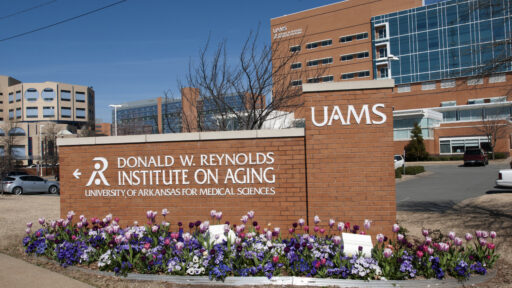Also called: AD
Alzheimer's disease (AD) is the most common form of dementia among older people. Dementia is a brain disorder that seriously affects a person's ability to carry out daily activities.
AD begins slowly. It first involves the parts of the brain that control thought, memory and language. People with AD may have trouble remembering things that happened recently or names of people they know. A related problem, mild cognitive impairment (MCI), causes more memory problems than normal for people of the same age. Many, but not all, people with MCI will develop AD.
In AD, over time, symptoms get worse. People may not recognize family members. They may have trouble speaking, reading or writing. They may forget how to brush their teeth or comb their hair. Later on, they may become anxious or aggressive, or wander away from home. Eventually, they need total care. This can cause great stress for family members who must care for them.
AD usually begins after age 60. The risk goes up as you get older. Your risk is also higher if a family member has had the disease.
No treatment can stop the disease. However, some drugs may help keep symptoms from getting worse for a limited time.
NIH: National Institute on Aging
Courtesy of MedlinePlus from the National Library of Medicine.
Syndicated Content Details:
Source URL: https://medlineplus.gov/alzheimersdisease.html?utm_source=mplusconnect&utm_medium=service
Source Agency: National Library of Medicine
Alzheimer's disease
Alzheimer's disease is a degenerative disease of the brain that causes dementia, which is a gradual loss of memory, judgment, and ability to function. This disorder usually appears in people older than age 65, but less common forms of the disease appear earlier in adulthood.
Memory loss is the most common sign of Alzheimer's disease. Forgetfulness may be subtle at first, but the loss of memory worsens over time until it interferes with most aspects of daily living. Even in familiar settings, a person with Alzheimer's disease may get lost or become confused. Routine tasks such as preparing meals, doing laundry, and performing other household chores can be challenging. Additionally, it may become difficult to recognize people and name objects. Affected people increasingly require help with dressing, eating, and personal care.
As the disorder progresses, some people with Alzheimer's disease experience personality and behavioral changes and have trouble interacting in a socially appropriate manner. Other common symptoms include agitation, restlessness, withdrawal, and loss of language skills. People with Alzheimer's disease usually require total care during the advanced stages of the disease.
Individuals with Alzheimer's disease usually survive 8 to 10 years after the appearance of symptoms, but the course of the disease can range from 1 to 25 years. Survival is usually shorter in individuals diagnosed after age 80 than in those diagnosed at a younger age. In Alzheimer's disease, death usually results from pneumonia, malnutrition, or general body wasting (inanition).
Alzheimer's disease can be classified as early-onset or late-onset. The signs and symptoms of the early-onset form appear between a person's thirties and mid-sixties, while the late-onset form appears during or after a person's mid-sixties. The early-onset form of Alzheimer's disease is much less common than the late-onset form, accounting for less than 10 percent of all cases of Alzheimer's disease.
Courtesy of MedlinePlus from the National Library of Medicine.
Syndicated Content Details:
Source URL: https://medlineplus.gov/genetics/condition/alzheimers-disease?utm_source=mplusconnect&utm_medium=service
Source Agency: National Library of Medicine




